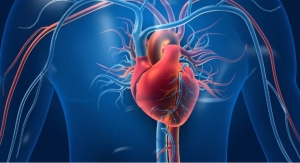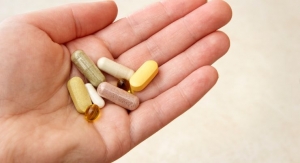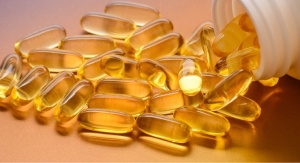Marian Zboraj03.14.07
A new analysis by the Florida Department of Citrus, Lakeland, FL, of beverage consumption among participants of the National Health and Nutrition Examination Survey (NHANES) study shows 100% orange juice ranked first in delivering essential nutrients such as vitamin C and folate to support long-term health, even though it was the sixth most consumed beverage. As part of a well-balanced diet, orange juice keeps the body hydrated and packs the nutritional punch needed to help keep the immune system strong.
"Try to incorporate foods rich in vitamin C and folate, as well as vitamin A, vitamin B6, vitamin E, carotenoids, and minerals such as iron, zinc and selenium into daily meals," said Dr. Pamela Peeke, author of The New York Times bestseller Body for Life for Women and the upcoming Fit to Live. "A diet rich in these essential vitamins and nutrients will yield short- term benefits, such as helping the body to battle common colds, as well as aid in long-term disease prevention, potentially helping the body fight chronic diseases such as cancer, heart disease and Alzheimer's."
The immune system is a complex and integrated series of processes that require a readily available supply of vitamins and minerals in order to function properly. To help support the immune system for a lifetime of proper function, Dr. Peeke recommends incorporating foods with the following nutrients:
• Vitamin C: One of the most powerful antioxidants, vitamin C plays a key role in helping to support the immune system's ability to fight routine illnesses such as the common cold. Vitamin C also helps neutralize free radicals that can cause cell and tissue damage that, over a lifetime, could lead to chronic diseases, including cancer and heart disease. Cancer researcher, Dr. Gladys Block, PhD, reports that people with low vitamin C intake (less than 50 mg/day) appeared to have approximately twice the cancer risk, compared to people with higher (greater than 100 mg/day) vitamin C intake.
• Folate: Lack of folate is a common vitamin deficiency for adults, though it is essential for a healthy immune system. In addition to reducing the risk of certain birth defects when consumed during early pregnancy, folate can also help lower homocysteine levels in the blood. Homocysteine may contribute to inflammation, which is believed to be related to coronary heart disease and cognitive impairment associated with Alzheimer's disease. Also, lower intake of folate as an adult has been associated in some studies with certain types of cancer.
• Vitamin B6: The immune system needs vitamin B6 to function effectively. It helps maintain the health of lymphoid organs that make white blood cells, which fight infections. Studies show that a vitamin B6 deficiency can decrease antibody production and suppress immune response.
• Carotenoids: Natural pigments found in plants, carotenoids, provide many fruits and vegetables their bright red, yellow and orange coloration. Some carotenoids have pro-vitamin A activity, which has been clearly associated with enhancing immune function and may have an impact on the risk of certain types of cancer as well as anti-inflammatory benefits.
• Iron: A lack of iron in the body can slow down an immune response. Iron is an essential mineral for helping to carry oxygen in the blood as well as the formation of red blood cells. In addition, consuming foods rich in vitamin C aids the body in the absorption of iron.
"Try to incorporate foods rich in vitamin C and folate, as well as vitamin A, vitamin B6, vitamin E, carotenoids, and minerals such as iron, zinc and selenium into daily meals," said Dr. Pamela Peeke, author of The New York Times bestseller Body for Life for Women and the upcoming Fit to Live. "A diet rich in these essential vitamins and nutrients will yield short- term benefits, such as helping the body to battle common colds, as well as aid in long-term disease prevention, potentially helping the body fight chronic diseases such as cancer, heart disease and Alzheimer's."
The immune system is a complex and integrated series of processes that require a readily available supply of vitamins and minerals in order to function properly. To help support the immune system for a lifetime of proper function, Dr. Peeke recommends incorporating foods with the following nutrients:
• Vitamin C: One of the most powerful antioxidants, vitamin C plays a key role in helping to support the immune system's ability to fight routine illnesses such as the common cold. Vitamin C also helps neutralize free radicals that can cause cell and tissue damage that, over a lifetime, could lead to chronic diseases, including cancer and heart disease. Cancer researcher, Dr. Gladys Block, PhD, reports that people with low vitamin C intake (less than 50 mg/day) appeared to have approximately twice the cancer risk, compared to people with higher (greater than 100 mg/day) vitamin C intake.
• Folate: Lack of folate is a common vitamin deficiency for adults, though it is essential for a healthy immune system. In addition to reducing the risk of certain birth defects when consumed during early pregnancy, folate can also help lower homocysteine levels in the blood. Homocysteine may contribute to inflammation, which is believed to be related to coronary heart disease and cognitive impairment associated with Alzheimer's disease. Also, lower intake of folate as an adult has been associated in some studies with certain types of cancer.
• Vitamin B6: The immune system needs vitamin B6 to function effectively. It helps maintain the health of lymphoid organs that make white blood cells, which fight infections. Studies show that a vitamin B6 deficiency can decrease antibody production and suppress immune response.
• Carotenoids: Natural pigments found in plants, carotenoids, provide many fruits and vegetables their bright red, yellow and orange coloration. Some carotenoids have pro-vitamin A activity, which has been clearly associated with enhancing immune function and may have an impact on the risk of certain types of cancer as well as anti-inflammatory benefits.
• Iron: A lack of iron in the body can slow down an immune response. Iron is an essential mineral for helping to carry oxygen in the blood as well as the formation of red blood cells. In addition, consuming foods rich in vitamin C aids the body in the absorption of iron.



























